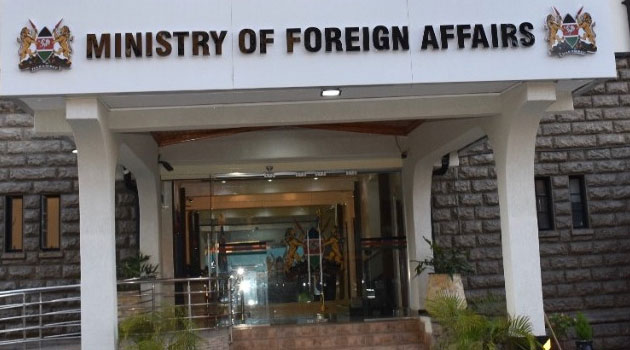
Kenya blocks Somaliland’s quest for diplomatic status in Nairobi » Capital News
NAIROBI, Kenya, May 28 — Kenya has blocked Somaliland’s attempt to elevate its representation in Nairobi to diplomatic status, disrupting a planned office launch on Tuesday by the region’s president, Abdirahman Mohamed Abdullahi, who arrived in the country on Monday.
In a diplomatic note circulated Tuesday night, the Ministry of Foreign and Diaspora Affairs confirmed it had not authorized the event by the region that has been seeking international recognition as an independent state, despite President Abdullahi’s arrival for what his office described as a “strategic diplomatic visit.”
“To the extent the event of 27 May 2025 has not been granted approval from this Ministry, its investiture of the status of a Diplomatic Office does not enjoy the imprimatur of the Republic of Kenya and cannot be allowed to proceed,” the ministry stated.
In the letter addressed to the Somaliland Liaison Office in Nairobi, the ministry reaffirmed Kenya’s recognition of the Federal Government of Somalia as the sole legitimate authority over Somali territories, including the semi-autonomous regions of Somaliland and Jubaland.
“The Ministry of Foreign and Diaspora Affairs wishes to reiterate that the Government of the Republic of Kenya maintains and respectfully reaffirms its unwavering recognition of the Federal Republic of Somalia as a sovereign State,” the statement read.
However, Kenya reiterated its intention to maintain working relationships with Somaliland and other regional governments, while emphasizing that such engagement must occur through coordination with Mogadishu.
“Kenya appreciates its relations with Somaliland and other regional governments, which are meant to enhance peace, security, trade, and investment in the region,” the ministry added.
The Foreign Office had, ahead of Abdullahi’s visit, released a statement reaffirming Kenya’s respect for Somalia’s “sovereignty, territorial integrity, national unity, and political independence,” and restating its unequivocal recognition of Mogadishu as the central authority.
Delicate balancing
Still, Nairobi maintained it would continue to engage sub-national entities such as Jubaland and Somaliland.
“To advance the partnership, Kenya will maintain contact and relations with sub-national governments in Jubaland and Somaliland, and in consultation with the Federal Government of Somalia… with the aim of supporting security cooperation and commercial interests and in line with the principles of mutual respect and good neighbourliness,” the statement read.
Kenya’s dealings with Somaliland have long been a flashpoint in its often-fraught relationship with Somalia.
The two countries have experienced repeated diplomatic tiffs, frequently triggered by high-level interactions between Kenyan officials and representatives of Somaliland — incidents that have at times led to trade restrictions and the recall of ambassadors.
‘Somaliland Ambassador’
One such diplomatic faux pas occurred in December 2023 when Foreign Affairs Principal Secretary Korir Sing’oei rebuked Senate Speaker Amason Kingi for announcing a meeting with the “Somaliland Ambassador to Kenya.”
Sing’oei reminded legislators that “foreign policy is a function of the national government,” and emphasized that Somaliland’s presence in Nairobi is limited to a liaison office for commercial purposes — not a diplomatic mission.
Kenya’s stance, he noted, aligns with the African Union, which recognizes the Federal Republic of Somalia as the sole sovereign entity.
Earlier, in 2019, bilateral tensions flared again when three Somali officials — a deputy minister and two senators — were denied entry at Jomo Kenyatta International Airport for not holding valid visas.
The incident came just weeks after Kenya and Somalia had agreed to restore diplomatic relations following a maritime boundary dispute over a 62,000 square-mile stretch of the Indian Ocean.
At the time, then-Foreign Affairs Cabinet Secretary Monica Juma stated that Kenya had no policy to block legitimate travelers but insisted that even diplomatic passport holders must comply with visa requirements.
“You all know that all of us travel with visas. So if you really don’t have a visa, it would really be very difficult to enter a country,” she said.
“I don’t have the specifics of the case, but I’d be very surprised if anybody was turned away with a visa.”
That standoff led to a full diplomatic fallout, with both countries withdrawing their ambassadors.
It took Ethiopian Prime Minister Abiy Ahmed’s intervention to broker a reconciliation meeting between Presidents Uhuru Kenyatta and Mohamed Abdullahi Farmaajo, temporarily easing tensions.